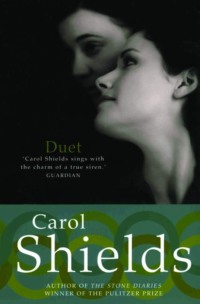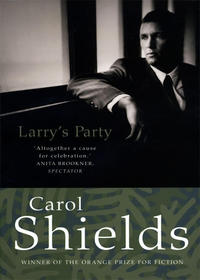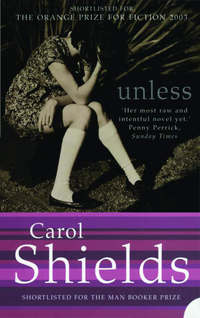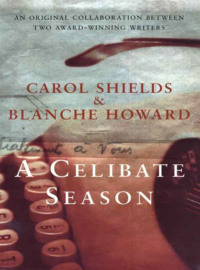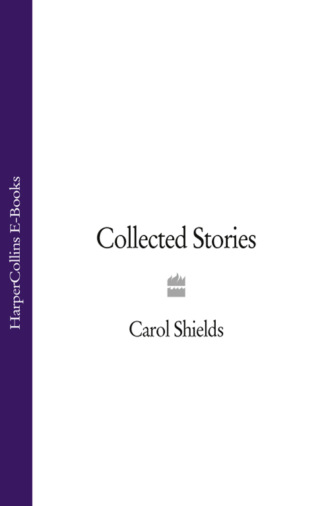
Полная версия
Collected Stories
I stop and ask some schoolchildren what the excitement is about, and a little boy in a striped sweater tells me that Mario Valeso is autographing copies of Purple Blooms over in the shady spot under the magnolia tree. There is a great deal of pushing and shoving and general rowdyism. Everyone, it seems, has brought along a copy of Purple Blooms for Mr. Valeso to sign. Shana is there with Edward, her arm slipped through his, and they both tell me they have “been greatly helped and strengthened” by reading the poems. “It’s all a matter of making connections,” Shana says in her breathless way, and Edward says, “It’s discovering that we all share the same ancestors.”
Then, to my surprise, I catch sight of my mother ahead of me in the crowd, and it pleases me to see that she has put on her best cardigan and her white shoes and that she is holding forth loudly to someone or other, saying, “Letting go of the past means embracing the present.” Someone else is saying, “The seeds of childhood grow on mysterious parental soil,” and an old man in a baseball cap is muttering, “We are the sum of our collective memories.”
The crowd grows even larger, and again and again I find myself pushed to the end of the line. I realize it will be hours before my turn comes, and so I pull a book out of my knapsack to help while away the time. It is a new book of poetry, untitled and anonymous, which appears to be a celebration of the randomness and disorder of the world. We are solitary specks of foam, the poet says, who are tossed on a meaningless sea. Every wave is separate, and one minute in time bears no relationship to the moment that precedes or follows it.
I read on and on, and soon forget about the people crowding around me and reading over my shoulder. The bowling green fades into dimness, as do the benches and the magnolia tree and the gravel path, until all that’s left is a page of print, a line of type, a word, a dot of ink, a shadow on the retina that is no bigger, I believe, than the smallest violet in the woods.
Flitting Behavior
SOME OF MEERSHANK’S WITTIEST WRITING was done during his wife’s final illness.
“Mortality,” he whispered each morning to give himself comfort, “puts acid in the wine.” Other times he said, as he peered into the bathroom mirror, “Mortality puts strychnine in the candy floss. It puts bite in the byte.” Then he groaned aloud—but only once—and got straight back to work.
His novel of this period, Malaprop in Disneyfield, was said to have been cranked out of the word processor between invalid trays and bedpans. In truth, he wept as he set down his outrageous puns and contretemps. The pages mounted, two hundred, three hundred. The bulk taunted him, and meanwhile his wife, Louise, lingered, her skin growing as transparent as human skin can be without disintegrating. A curious odor, bitter and yellow, stole over the sickroom. Meershank had heard of the odor that preceded death; now he breathed it daily.
It was for this odor, more than anything else, that he pitied her, she who’d busied herself all her life warding off evil smells with scented candles and aerosol room fresheners. Since a young woman she’d had the habit of sweetening her bureau drawers, and his too, with sprigs of dried lavender, and carrying always in her handbag and traveling case tiny stitched sachets of herbs. He had sometimes wondered where she found these anachronistic sachets; who in the modern industrial world produced such frivolities?—the Bulgarians maybe, or the Peruvians, frantic for hard currency.
Toward the end of Louise’s illness he had a surprise visit from his editor, a vigorous, leggy woman of forty who drove up from Toronto to see how the new manuscript was coming along. She came stepping from her car one Monday afternoon in a white linen jumpsuit. Bending slightly, she kissed Meershank on both cheeks and cried out, “But this is extraordinary! That you can even think of work at a time like this.”
Meershank pronounced for her his bite-in-the-byte aperçu, very nearly choking with shame.
He was fond of his editor—her name was Maybelle Spritz—but declined to invite her into his wife’s bedroom, though the two women knew and liked each other. “She’s not strong enough for visitors,” he said, knowing it was the smell of the room he guarded her from, his poor Louise’s last corner of pride. “Maybe later.”
He and Maybelle sat drinking coffee on the veranda most of the afternoon. The weather all week had been splendid. Birds sang in the branches of Meershank’s trees, and sunlight flooded the long triangle of Meershank’s side lawn. Maybelle, reading slowly as always, turned over the manuscript pages. Her nails were long and vivid. She held a pencil straight up in her hand, and at least once every three minutes or so she let loose a bright snort of laughter, which Meershank welcomed like a man famished. He watched her braided loop of auburn hair and observed how the light burned on the tips of her heavy silver earrings. There was a bony hollow at the base of her neck that deepened, suddenly, each time another snort was gathering. Later, at five o’clock, checking his watch, he offered gin and tonic. For Louise upstairs he carried cream of celery soup, weak tea and an injection for her hip, which the visiting nurse had taught him to administer.
“Are you feeling lonely?” his wife asked him, turning on one side and readying herself for the needle. She imagined, rightly, that he missed her chatter, that her long days spent in drugged sleep were a deprivation. Every day she asked the same question, plunging him directly into blocky silence. Yes, he was lonely. No, he was not lonely. Which would please her more? He kept his hand on her discolored hip and mumbled the news—testing it—that Maybelle Spritz was thinking of coming for a visit.
She opened her eyes and managed a smile as he rearranged the pillows. He had a system: one pillow under each knee, one at the small of her back and two to support her shoulders. The air in the room was suffocating. He asked again, as he did every day, if he might open a window. No, she said, as she always did; it was too cold. She seemed convinced that spring had not arrived in its usual way, she who’d always been so reasonable.
Downstairs Maybelle stood in the kitchen drinking a second gin and tonic and heating up a noodle pudding she had brought along. She had occasionally been a dinner guest in Meershank’s house, but had never before penetrated the kitchen. She set a little table on the veranda. There was a breeze, enough to keep the mosquitoes away for a bit. Knives and forks she discovered easily in the first drawer she opened. The thick white dinner plates she found stacked on a shelf over the sink. There were paper napkins of a most ordinary sort in a cupboard. As she moved about she marveled at the domesticity of the famous, how simple things appeared when regarded close up, like picking up an immense orange and finding it all thick hide on a tiny fruit. She wondered if Meershank would ask her to spend the night.
————
They had only once before shared a bed, and that had been during the awful week after Louise’s illness has been diagnosed.
The expression terminal, when the doctor first pronounced it, had struck Meershank with a comic bounce, this after a lifetime of pursuing puns for a living. His scavenger self immediately pictured a ghostly airline terminal in which scurrying men and women trotted briskly to and fro in hospital gowns.
The word terminal had floated out of the young doctor’s wide pink face; it was twice repeated, until Meershank collected himself and responded with a polite nod. Then he put back his head, counted the ceiling tiles—twelve times fourteen—and decided on the spot that his wife must not be told.
The specialist laced clean hands across flannel knees and pressed for honest disclosure; there were new ways of telling people that they were about to die; he himself had attended a recent symposium in Boston and would take personal responsibility …
No. Meershank held up his hand. This was nonsense. Why did people insist that honesty was the only way of coping with truth? He knew his wife. After thirty-five years of marriage he knew his wife. She must be brought home from the hospital and encouraged to believe that she would recover. Rest, medication, country air—they would work their healing magic. Louise could always, almost always, be persuaded to follow a reasonable course.
The following day, having signed the release papers and made the arrangements to have his wife moved, Meershank, until then a faithful husband, took his editor, Maybelle Spritz, to a downtown hotel and made plodding love to her, afterward begging pardon for his age, his grief and his fury at the fresh-faced specialist who, concluding their interview, had produced one of Meershank’s books, Walloping Westward, and begged the favor of an inscription. Meershank coldly took out a pen and signed his name. He reminded himself that the Persians had routinely put to death the bearer of bad news.
Home again, with Louise installed in the big front bedroom, he resumed work. His word processor hummed like a hornet from nine to five, and the pages flew incriminatingly out of the printer. During the day his brain burned like a lightbulb screwed crookedly into a socket. At night he slept deeply. He wondered if he were acquiring a reputation for stoicism, that contemptible trait! Friends stopped by with gifts of food or flowers. The flowers he carried up to Louise’s bedroom, where they soon drooped and died, and the food he threw in the garbage. Coffee cakes, almond braids, banana loaves—his appetite had vanished.
“Eat,” Maybelle commanded, loading his plate.
He loved noodle pudding, and wondered how Maybelle knew. “It’s in your second novel,” she reminded him. “Snow Soup and Won Ton Drift. Remember? Wentzel goes into the café at Cannes and demands that—”
“I remember, I remember.” Meershank held up a hand. (He was always holding up a hand nowadays, resisting information.) He had a second helping, ingesting starch and sweetness. This was hardly fitting behavior for a grieving husband. He felt Maybelle’s eyes on him. “I shoulda brought more,” she said, sounding for a minute like a girl from Cookston Corners, which she was. “I said to myself, he’ll be starving himself.”
For dessert she rummaged in the refrigerator and found two peaches. Louise would have peeled them and arranged the slices in a cut glass bowl. Meershank and Maybelle sat eating them out of their hands. He thought to himself: this is like the last day of the world.
“Ripe,” Maybelle pronounced. There was a droplet of juice on her chin, which she brushed away with the back of her hand. Meershank observed that her eyes looked tired, but perhaps it was only the eye shadow she wore. What was the purpose of eye shadow, he wondered. He had never known and couldn’t begin to imagine.
A character in his first book, Swallowing Hole, had asked this question aloud to another character, who happened to be his wife. What was her name? Phyllis? Yes, Phyllis of the phyllo pastry and philandering nights. “Why do you smudge your gorgeous green eyes with gook?” he, the cockolded husband, had asked. And what had the fair Phyllis replied? Something arch, something unpardonable. Something enclosing a phallic pun. He had forgotten, and for that he blessed the twisted god of age. His early books with their low-altitude gag lines embarrassed him, and he tried hard to forget he had once been the idiot who wrote them.
Maybelle, on the other hand, knew his oeuvre with depressing thoroughness and could quote chapter and verse. Well, that was the function of an editor, he supposed. A reasonable man would be grateful for such attention. She was a good girl. He wished she’d find a husband so he would feel less often that she’d taken the veil on his account. But at least she didn’t expect him to converse with wit. Like all the others, she’d bought wholesale the myth of the sad jester.
It was a myth that he himself regarded with profound skepticism. He’d read the requisite scholarly articles, of course, and had even, hypocrite that he was, written one or two himself. Humor is a pocket pulled inside out; humor is an anguished face dumped upside down; humor is the refuge of the grunting cynic, the eros of the deprived lover, the breakfast of the starving clown. Some of these cheap theories he’d actually peddled aloud to the graduating class at Trent a year ago, and his remarks had been applauded lustily. (How much better to lust applaudingly, he’d cackled, sniggered, snorted inside his wicked head.)
He suspected that these theories were leapt upon for their simplicity, their symmetry, their neat-as-a-pin ironic shimmer. They were touted by those so facile they were unable to see how rich with ragged comedy the world really was. But Meershank knew, he knew! Was it not divinely comic that only yesterday he’d received a telephone solicitation from the Jackson Point Cancer Fund? Wasn’t it also comic that the specter of his wife’s death should fill him with a wobbly lust for his broad-busted, perfume-wafting, forty-year-old editor? For that matter, wasn’t it superbly comic that a man widely known as a professional misogynist had remained happily married to one woman for thirty-five years? (Life throws these kinky curves a little too often, Meershank had observed, and the only thing to do was open your fool mouth and guffaw.)
At nine he checked once again on his wife, who was sleeping quietly. If she woke later, a second injection was permitted. He carried a bottle of brandy out on to the veranda. One for the road?, he asked Maybelle with his eyebrows. Why not, she said with a lift of her shoulders. Her upper lip went stiff as a ledge in the moonlight, and he shuddered to think he was about to kiss her. The moon tonight was bloated and white, as fretful as a face. Everywhere there was the smell of mock orange blossoms, which had bloomed early this year and in absurd profusion. Crickets ticked in the grass, like fools, like drunkards. Meershank lifted his glass. The brandy burned his throat and made him retreat for an instant, but Maybelle became attenuated, lively, sharp of phrase, amusing. He laughed aloud for the first time in a week, wondering if the world would crack down the middle.
It did. Or seemed to. A loud overhead popping noise like the cracking of whips made him jump. Maybelle slammed down her glass and stared. All around them the sky flashed white, then pink, then filled with rat-a-tat-tat fountains and sparks and towering plumes.
“Jesus,” Maybelle said. “Victoria Day. I almost forgot.”
“I did forget,” Meershank said. “I never once thought.”
A rocket whined and popped, made ropy arcs across the sky, burst into petals, leaving first one, then a dozen blazing trails. It was suddenly daylight, fierce, then faded, then instantly replaced by a volley of cracking gunpowder and new showers of brilliance.
The explosions, star-shaped, convulsive, leaping out of the other, made Meershank think of the chains of malignant cells igniting in his wife’s body.
He set down his brandy, excused himself and hurried upstairs.
Meershank, marrying Louise Lovell in 1949, had felt himself rubbing bellies for the first time with the exotic. He, a Chicago Jew, the son of a bond salesman, had fallen in love with a gentile, a Canadian, a fair-haired girl of twenty who had been gently reared in the Ottawa Valley by parents who lived quietly in a limestone house that was a hundred years old. It faced on the river. There was a rose garden criss-crossed by gravel paths and surrounded by a pale pink brick wall. Oh, how silently those two parents had moved about in their large square rooms, in winter wrapping themselves in shawls, sitting before pots of raspberry-leaf tea and making their good-natured remarks about the weather, the books they were forever in the middle of, the tiny thunder of politics that flickered from their newspaper, always one day old.
The mother of Louise possessed a calm brow of marble. The father had small blue eyes and hard cheeks. He was the author of a history of the Canadian Navy. It was, he told Meershank, the official history. Meershank was given a signed copy. And he was given, too, with very little noise or trouble, the hand of Louise in marriage. He had been stunned. Effortlessly, it seemed, he’d won from them their beloved only daughter, a girl of soft hips and bland hair done roundly in a pageboy.
“What exactly do you do?” they only once asked. He worked as a correspondent for a newspaper, he explained. (He did not use the word journalist.) And he hoped one day to write a book. (“Ah! A book! Splendid!”)
The wedding was in the month of June and was held in the garden. Meershank’s relatives did not trouble to travel all the way up from Chicago. The wedding breakfast was served out-of-doors, and the health of the young couple—Meershank at twenty-seven was already starting to bald—was toasted with a non-alcoholic fruit punch. The family was abstemious; the tradition went back several generations; alcohol, tobacco, caffeine—there wasn’t a trace of these poisons in the bloodstream of Meershank’s virgin bride. He looked at her smooth, pale arms—and eventually, when legally married, at her smooth, pale breasts—and felt he’d been singularly, and comically, blessed.
There is a character, Virgie Allgood, in Meershank’s book Sailing to Saskatchewan, who might be said to resemble Louise. In the book, Virgie is an eater of whole grains and leafy vegetables. Martyrlike, she eschews french fries, doughnuts and liver dumplings, yet her body is host to disease after disease. Fortified milk fails. Pure air fails. And just when the life is about to go out of her, the final chapter, a new doctor rides into town on a motorbike and saves her by prescribing a diet of martinis and cheesecakes.
There is something of Louise, too, in the mother in Meershank’s tour de force, Continuous Purring. She is a woman who cannot understand the simplest joke. Riddles on cereal boxes have to be laboriously explained. Puns strike her as being untidy scraps to be swept up in a dustpan. She thinks a double entendre is a potent new drink. She is congenitally immune to metaphor (the root of all comedy, Meershank believes), and on the day her husband is appointed to the Peevish Chair of Midbrow Humor, she sends for the upholsterer.
When Encounter did its full-length profile on Meershank in 1981, it erred by stating that Louise Lovell Meershank had never read her husband’s books. The truth is she not only had read them, but before the birth of the word processor she had typed them, collated the pages, corrected their virulent misspelling, redistributed semicolons and commas with the aplomb of a goddess, and tactfully weeded out at least half of Meershank’s compulsive exclamation points. She corresponded with publishers, arranged for foreign rights, dealt with book clubs and with autograph seekers, and she always—less and less frequently, of course—trimmed her husband’s fluffy wreath of hair with a pair of silver-handled scissors.
She read Meershank’s manuscripts with a delicious (to Meershank) frown on her wide pale brow—more and more she’d grown to resemble her mother. She turned over the pages with a delicate hand as though they possessed the same scholarly sheen as her father’s Official History of the Canadian Navy. She read them not once, but several times, catching a kind of overflow of observance that leaked like oil and vinegar from the edges of Meershank’s copious, verbal, many-leafed salads.
Her responses never marched in time with his. She was slower, and could wave aside sentimentality, saying, “Why not?—it’s part of the human personality.” Occasionally, she said the unexpected thing, as when she described her husband’s novella, Fiend at the Water Fountain, as being, “cool and straight up and down as a tulip.”
What she actually told the journalist from Encounter was that she never laughed when reading her husband’s books. For this Meershank has always respected her, valued her, adored her. She was his Canadian rose, his furry imbiber of scented tea, his smiling plum, his bread and jam, his little squirrel, his girlie-girl, his Dear Heart who promised in the garden by the river beside the limestone house in 1949 to stay at his side forever and ever. What a joke she has played on him in the end.
She has, Meershank said to Maybelle, taken a turn for the worse. He phoned the doctor, who said he would come at once. Then he handed Maybelle a piece of paper on which two telephone numbers were written. “Please,” he said. “Phone the children.”
Maybelle was unprepared for this. And she had never met the children. “What should I tell them?” she asked.
“Tell them,” Meershank said, and paused. “Tell them it could be sooner than we thought.”
One of the daughters, Sonya, lived in London, Ontario, where she was the new director of the program for women’s studies. (For those who trouble to look, her mirror image can be found in Ira Chauvin, post-doc researcher in male studies, in Meershank’s academic farce, Ten Minutes to Tenure.) Sonya did not say to Maybelle, “Who is this calling?” or “How long does she have?” She said, “I’ll be there in three hours flat.”
The other daughter, Angelica, ran a health-food restaurant and delicatessen with her husband, Rusty, in Montreal. They were just closing up for the night when Maybelle phoned. “I can get a plane at midnight,” Angelica said in a high, sweet, shaky voice. “Tell her to wait for me.”
After that Maybelle sat on a kitchen chair in the dark. She could have switched on the light, but she preferred to sit as she was and puzzle over what level of probability had landed her on the twenty-fourth of May as a visitor—she was not such a fool as to mistake a single embrace for anything other than a mutation of grief.
The tiles of the kitchen wall, after a moment, took on a greenish glow, and she began to float out of her body, a trick she had perfected during her long years of commuting between Cookston Corners and downtown Toronto. First she became Sonya, flying down an eastbound highway, her hands suddenly younger and supple-jointed on the slippery wheel. She took the long cloverleafs effortlessly, the tires of her tough little car zinging over ramps and bridges, and the sleepy nighttime radio voices holding her steady in the middle lane.
Then, blinking once and shutting out the piny air, she was transformed into Angelica, candid, fearful, sitting tense in an aisle seat at the rear of a plane—she had her mother’s smooth cheeks, her father’s square chin and her own slow sliding tears. On her lap she clutched a straw bag, and every five minutes she pushed back the sleeve of her blouse and checked her wristwatch, trying to freeze its hands with her will.
Next she was the doctor—springing onto the veranda, tapping at the screen door and taking the stairs two at a time. She drifted then into the amorphous body of Louise, where it was hot and damp and difficult to breathe, but where shadows reached out and curved around her head. Her hands lay surprisingly calm on the sheet—until one of them was lifted and held to Meershank’s beating heart.
She felt his bewilderment and heard with his ears a long popping chain of firecrackers going off. A window in the bedroom had been opened—at last—and the scent of the mock orange blossoms reached him with a rushing blow. Everything was converging. All the warm fluids of life came sliding behind Maybelle’s eyes, and she had to hold on to the sides of the kitchen chair to keep herself from disappearing.
In each of Meershank’s fictions there is what the literary tribe calls a “set piece,” a jewel, as it were, set in a spun-out text, or a chunk of narrative that is somehow more intense, more cohesive, more self-contained than the rest. Generally theatrical and vivid, it can be read and comprehended, even when severed from the wider story, or it can be “performed” by those writers—Meershank is not one—who like to gad about the country giving “readings.”
In Meershank’s recently published book, Malaprop in Disneyfield, the set piece has four characters sitting at dusk on a veranda discussing the final words of the recently deceased family matriarch. The sky they gaze into is a rainy mauve, and the mood is one of tenderness—but there is also a tone of urgency. Three of the four had been present when the last words were uttered, and some irrational prompting makes them want to share with the fourth what they heard—or what they thought they heard. Because each heard something different, and there is a descending order of coherence.




